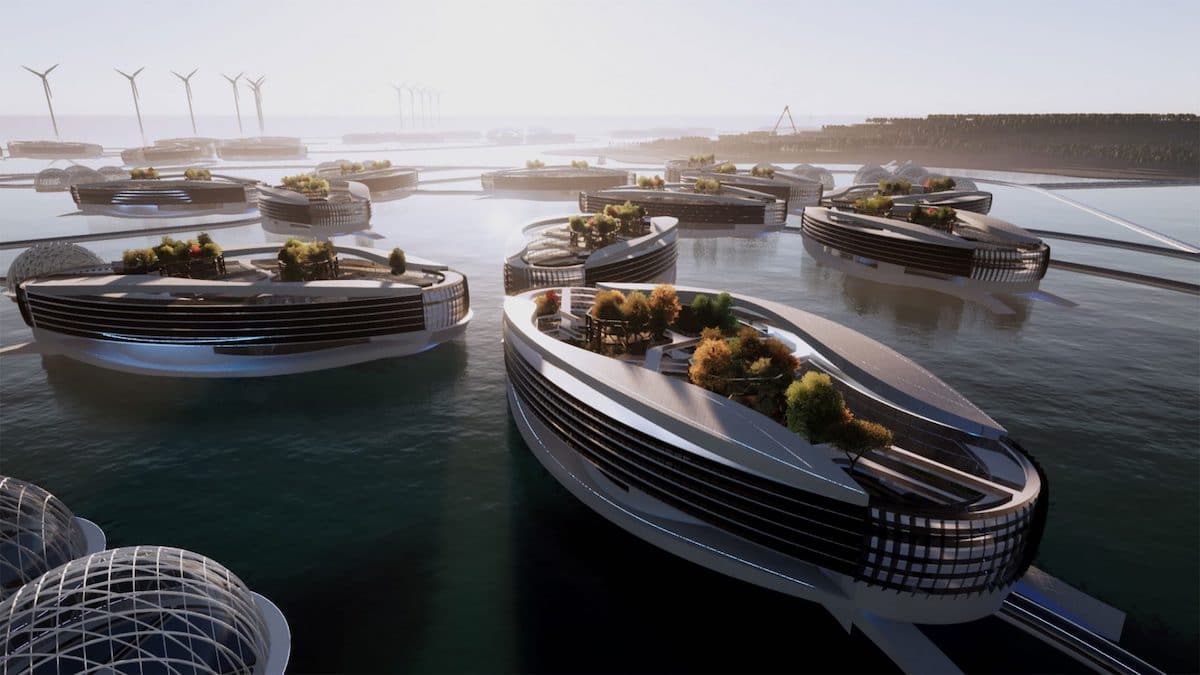
Contemporary architects and designers spend a lot of time imagining how we will live with the looming effects of climate change. Some of the most daring responses deal with innovative ways to live with water. Designer Justinian Khoo used his thoughts on the issue to win second place in the Redesign the World competition. Sponsored by architecture visualization software Twinmotion, the competition asks designers to rethink the workings of the entire planet.
Khoo designed The Whale to reimagine the world we live in, but he is specifically interested in a more productive relationship we could have with nature. “The floating city is designed for human survival and will provide care for the ocean,” he says. “At the same time, it provides freedom for nature on the land to restore the environment with animals and insects roaming freely and living their life with important roles in the ecosystem.”
The proposal is made up of clusters of floating cities grouped together like pods of whales. By moving human life to these structures, the planet’s landmasses can return to their natural state. Flora and fauna would be able to recover areas of human habitation and begin reversing climate change while rebuilding ecosystems.
Meanwhile, humans would learn to live more sustainably with their environment by using solar, wind, and sea renewable energy. A healthy diet would be possible through fish farming and traditional farming that relies on filtered wastewater and compost as fertilizer. In this way, the pods replicate the cycles of life on land while allowing us to act more responsibly with resources. True to its name, the Whale also replicates the natural instincts of the mammals that “protect each other and nurture their young together.”
Justinian Khoo’s The Whale was just one of over 100 entries to Dezeen’s Rebuild the World competition. For more entries, read more coverage of their favorite projects here.
